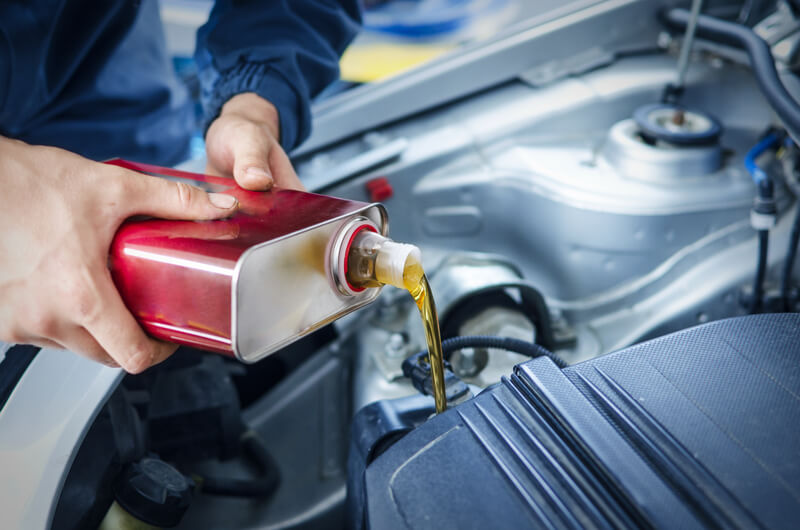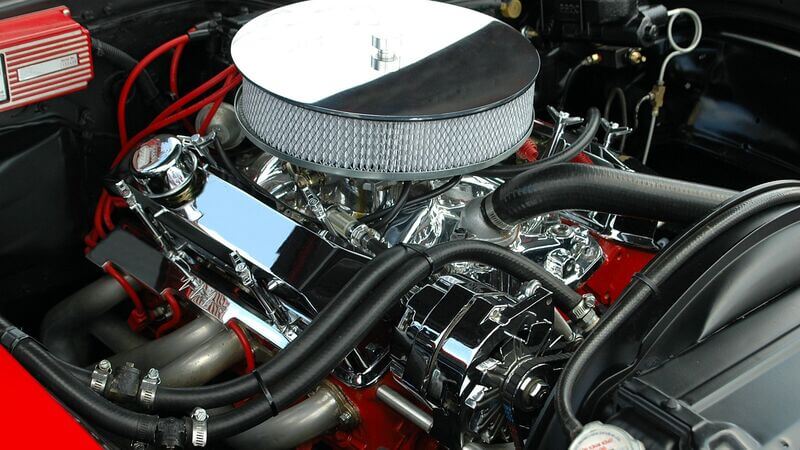Diesel and petrol engines are two widely used internal combustion engines that power numerous vehicles and machinery. While both engines operate on the same basic principle of converting fuel into mechanical energy, they differ significantly in terms of fuel composition, combustion process, and overall performance. Understanding the differences between petrol and diesel engines is crucial for various reasons. It helps individuals make informed decisions when purchasing vehicles, aids mechanics in diagnosing and repairing engine-related issues, and enables policymakers and researchers to develop efficient and sustainable transportation solutions.
Today’s post will discuss petrol and diesel engine’s differences. You will get valuable insights into the workings of these engines and their impact on your daily lives.
Comparison Between Petrol and Diesel Engines
Let’s talk about the major differences between petrol and diesel engines.

Fuel Composition and Ignition
Understanding the fuel composition and ignition processes in diesel and petrol engines is crucial as it impacts various aspects of their performance. The different fuel compositions influence factors such as energy efficiency, emissions, and fuel availability. The ignition processes have implications for engine design, performance characteristics, and fuel efficiency. By comprehending these differences, individuals can make informed decisions regarding vehicle choice, maintenance, and fuel usage.
- Fuel composition in diesel engines: Diesel engines primarily use diesel fuel. This fuel is a heavier and less refined form of petroleum. It consists of hydrocarbon molecules with longer carbon chains, higher energy content, and lower volatility compared to petrol. It also contains additives to improve lubrication and prevent engine wear.
- Fuel composition in petrol engines: Petrol engines commonly use gasoline as their fuel source. Gasoline is a lighter and more volatile fuel compared to diesel. It is composed of a mixture of hydrocarbons, including aromatic compounds, olefins, and paraffins. All these are derived from crude oil refining processes.
- Ignition process in diesel engines: In the diesel engine’s ignition process, the air is compressed within the engine cylinder, raising its temperature. Once the air reaches a high enough temperature, fuel is injected into the cylinder, where it spontaneously ignites due to heat and pressure.
- Ignition process in petrol engines: Petrol engines use spark ignition to initiate combustion. The air-fuel mixture is introduced into the cylinder. Then a spark plug generates an electric spark, igniting the mixture. The combustion process starts from the spark plug and propagates across the cylinder.
Combustion Process

Combustion Process in Diesel Engines:
After the air is compressed within the cylinder, fuel is injected directly into the combustion chamber. The high temperature and pressure cause the fuel to ignite spontaneously without the need for a spark plug. This combustion process results in a more controlled and gradual burn compared to petrol engines.
- Compression-Ignition: Compression ignition refers to the ignition of fuel in a diesel engine due to the high temperature and pressure created by compressing the air-fuel mixture. The piston moves upward during the compression stroke. This heats the air. As a result, the temperature becomes hot enough to ignite the injected fuel. This ignition method allows for a more efficient and fuel-flexible combustion process.
- Combustion Characteristics: The combustion characteristics of diesel engines are influenced by various factors. These include fuel injection timing, pressure, and spray pattern. The fuel is atomized into fine droplets, allowing for better mixing with the air. Diesel combustion is characterized by a longer ignition delay, a more gradual release of heat, and a higher peak pressure compared to petrol engines. These characteristics contribute to the diesel engine’s higher torque output and better fuel efficiency, especially at low engine speeds.
Combustion Process in Petrol Engines:
The combustion process in petrol engines involves spark ignition and exhibits distinct combustion characteristics.
- Spark ignition: Spark ignition refers to a specific mechanism by which the fuel-air mixture is ignited by a spark plug. This spark initiates the combustion reaction. It leads to the rapid release of energy. During combustion, the fuel-air mixture undergoes a series of chemical reactions. As a result, some combustion products such as carbon dioxide, water vapor, and nitrogen oxides, etc. form.
- Combustion characteristics: The combustion characteristics of petrol engines include a relatively fast combustion rate, high flame propagation speed, and the ability to achieve high power output. These characteristics are influenced by factors such as air-fuel ratio, spark timing, and engine design. All these play crucial roles in optimizing engine performance, fuel efficiency, and emissions control.
Diesel fuel has a calorific value of about 45.5 MJ/kg (MJ/kg), which is slightly less than that of petrol (45.8 MJ/kg). Diesel fuel, on the other hand, is denser than gasoline and has around 15% more energy by volume (about 36.9 MJ per litre as opposed to 33.7 MJ per litre). Even after accounting for the difference in energy density, the diesel engine’s total efficiency is still 20% higher than the petrol engine’s, despite the latter being heavier. Depending on the precise fuel composition, a fuel usage of 1 litre per 100 km equates to approximately 26.5g CO2/km for diesel and 23g CO2/km for petrol.
Engine Efficiency:
Learn about engine efficiency and how it impacts fuel consumption and performance. Discover the key factors that contribute to optimizing engine efficiency for a greener and more powerful drive.
Efficiency of Diesel Engines:
- Higher Thermodynamic Efficiency: Diesel engines are known for their higher thermodynamic efficiency compared to petrol engines. Diesel engines have higher compression ratios, which allow for better combustion efficiency.
- Better Fuel Economy: The higher thermodynamic efficiency of diesel engines contributes to their better fuel economy. Diesel engines can extract more usable energy from a given amount of fuel compared to petrol engines. This translates into fewer fuel consumption and longer travel distances per gallon of fuel.
Efficiency of Petrol Engines:
- Lower Thermodynamic Efficiency: Petrol engines generally have lower thermodynamic efficiency compared to diesel engines. The lower compression ratios in petrol engines result in a reduced ability to extract energy from the fuel. Additionally, petrol has lower energy density compared to diesel fuel, further impacting the overall efficiency of the engine.
- Lower Fuel Economy: Petrol engines have lower thermodynamic efficiency and less energy density of gasoline fuel as compared to diesel engines. Therefore, petrol engines exhibit comparatively lower fuel economy. Petrol engines consume more fuel for the same amount of work output compared to diesel engines. This means that gasoline-powered vehicles may require more frequent refuelling and have shorter travel ranges on a full tank of fuel.
Power Output in Diesel Engines and Petrol Engines:
Diesel engines are known for their higher power output compared to petrol engines, especially at lower engine speeds. The higher compression ratios in diesel engines, along with their efficient combustion process, result in greater torque production. This makes diesel engines well-suited for heavy-duty applications, such as hauling and towing.
On the other hand, petrol engines often deliver higher power outputs at higher engine speeds. Petrol engines typically have higher RPM (revolutions per minute) limits and can rev higher. This allows for increased power output in applications that demand higher engine speeds, such as sports cars.
Emission Levels:
Explore the emission levels in diesel and petrol engines.
Emission Levels in Diesel Engines:
Understanding the emission levels in diesel and petrol engines is essential for evaluating their environmental impact. Let’s have a look at first the emission levels in diesel engines:
- Particulate Matter (PM): Diesel engines produce higher levels of particulate matter (PM) emissions compared to petrol engines. PM consists of tiny solid particles and liquid droplets that are released during the combustion process. These particles can have adverse effects on air quality and human health.
- Nitrogen Oxides (NOx): Diesel engines tend to emit higher levels of nitrogen oxides (NOx) compared to gasoline engines. NOx contributes to air pollution and the formation of smog. They are formed when nitrogen in the air combines with oxygen at high temperatures during combustion.
Emission Levels in Petrol Engines:
Now let’s have a look at the emission levels in petrol engines:
- Carbon Dioxide (CO2): Petrol engines produce carbon dioxide (CO2) as a byproduct of combustion. CO2 is responsible for climate change and global warming.
- Hydrocarbons (HC) and Nitrogen Oxides (NOx): Petrol engines can generate emissions of hydrocarbons (HC) and nitrogen oxides (NOx). Hydrocarbons are unburned fuel compounds that contribute to the formation of smog. NOx emissions from petrol engines also contribute to air pollution and can have harmful effects on human health.
The Impact of Petrol Engines & Diesel Engines on the Environment: A Comparison
Petrol engines generally have a higher carbon dioxide (CO2) emissions footprint, contributing to climate change. On the other hand, diesel engines tend to produce higher levels of particulate matter (PM) and nitrogen oxides (NOx), impacting air quality. Balancing these factors is crucial for minimizing the environmental impact of both engine types.
Applications:
Applications of Diesel Engines:
- Heavy-Duty Vehicles: Diesel engines are commonly used in heavy-duty vehicles such as trucks, buses, and commercial vehicles. Their high torque output, fuel efficiency, and durability make them well-suited for hauling heavy loads over long distances.
- Industrial Machinery: Diesel engines find extensive use in various industrial applications, including generators, construction equipment, agricultural machinery, and marine propulsion. Their ability to provide reliable power and operate in remote locations makes them a popular choice in these sectors.
Applications of Petrol Engines:
- Passenger Vehicles: Petrol engines are widely utilized in passenger vehicles, ranging from compact cars to luxury sedans and SUVs. They offer a smoother and quieter operation, higher RPM limits, and better acceleration characteristics, making them suitable for everyday commuting and driving pleasure.
- Small Equipment: Petrol engines power a range of small equipment, such as lawnmowers, chainsaws, motorcycles, and recreational vehicles. Their lightweight design, ease of maintenance, and quick startup make them convenient for applications where mobility and portability are essential.
These applications highlight the diverse uses of diesel and gasoline engines, with diesel engines excelling in heavy-duty and industrial applications, while petrol engines are prevalent in passenger vehicles and smaller equipment.
Maintenance Requirements:

Maintenance Requirements of Diesel Engines:
- Fuel System: Diesel engines require regular maintenance of their fuel system, including fuel filter replacements and fuel injector cleaning. The high-pressure fuel injection system in diesel engines is prone to clogging and contamination, which can affect engine performance.
- Oil Changes: Diesel engines typically have longer oil change intervals compared to petrol engines. However, regular oil changes are still necessary to ensure proper lubrication and prevent engine wear. Diesel engine oils often have specific requirements to handle the higher heat and stress generated by compression ignition.
Maintenance Requirements of Petrol Engines:
- Ignition System: Petrol engines require periodic maintenance of their ignition system, including spark plug replacements and ignition timing adjustments. A well-functioning ignition system is crucial for efficient combustion and optimal engine performance.
- Regular Tune-ups: Petrol engines benefit from regular tune-ups, which may involve replacing air filters, fuel filters, and other components. These tune-ups help maintain engine efficiency, fuel economy, and emissions control, ensuring smooth operation and longevity.
Both diesel and petrol engines require regular maintenance to ensure optimal performance, reliability, and longevity. However, the specific maintenance requirements may vary due to the different combustion processes and components involved in each engine type.
Durability Comparison
Diesel engines are generally considered more durable than petrol engines. The robust construction, lower operating temperatures, and higher compression ratios in diesel engines contribute to their longevity. They are designed to withstand heavy loads and have a reputation for lasting longer, especially in applications like heavy-duty vehicles and industrial machinery.
Conclusion:
Diesel and petrol engines differ significantly in terms of fuel composition, ignition process, efficiency, emissions, applications, and maintenance requirements. When choosing between the two, factors such as intended application, fuel availability, environmental impact, and maintenance considerations should be taken into account. Understanding these differences helps individuals make informed decisions regarding vehicle selection and usage based on their specific needs and priorities.
FAQs:
Q: What is the main difference between a petrol engine and a diesel engine?
A: The main difference lies in the type of fuel used and the combustion process. Petrol engines use gasoline (petrol) as fuel, while diesel engines use diesel fuel. This distinction leads to variations in their design, operating principles & performance characteristics.
Q: How do the combustion processes differ in petrol and diesel engines?
A: Petrol engines use spark ignition, where a spark plug ignites a mixture of fuel and air. On the other hand, diesel engines use compression ignition, where high pressure and temperature generated during compression ignite the fuel. This fundamental difference accounts for variations in engine efficiency, power output & emissions.
